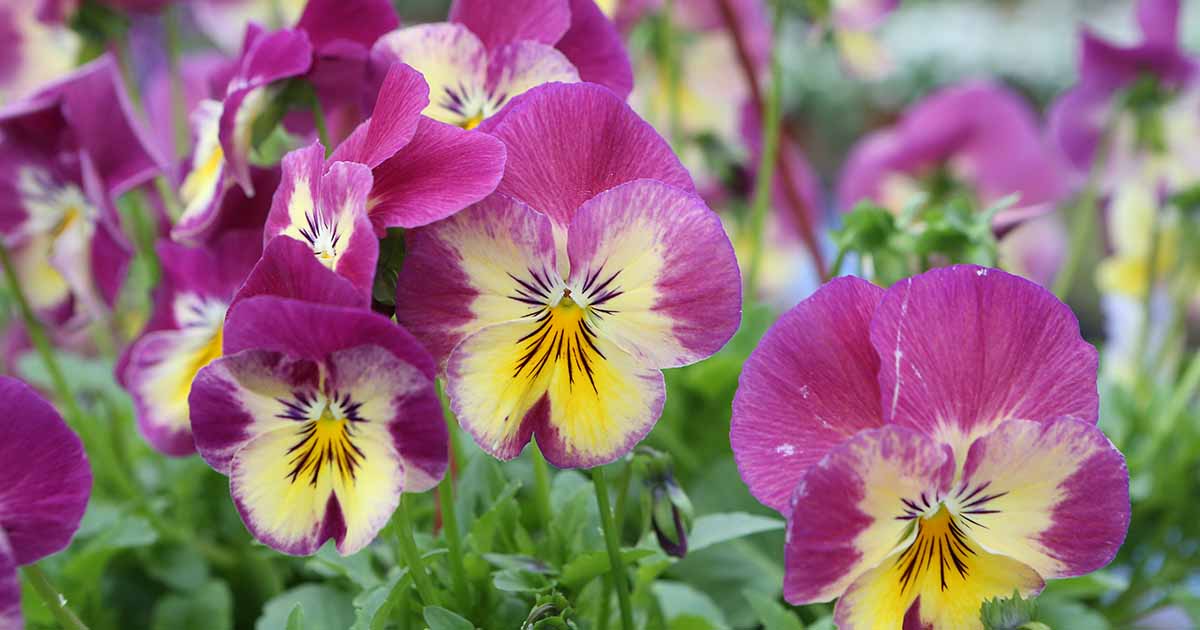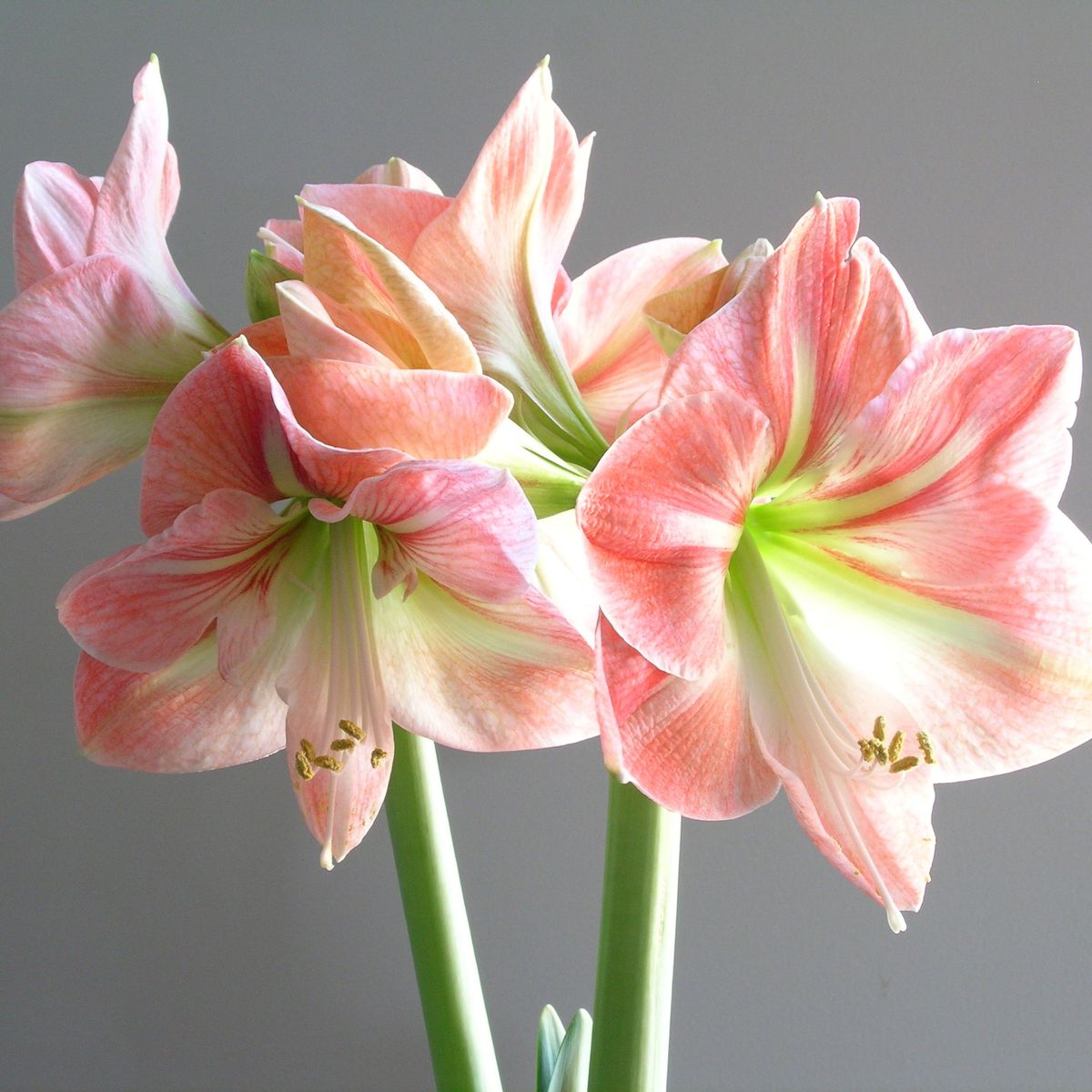Pansies, violets, and violas are some of my favorite flowers. These perky, cheerful blooms all belong to the same genus, Viola, but they are diverse in size and color.
Known for being prolific bloomers, they’re perfect for beginning gardeners because of how easy they are to grow, and valued by longtime gardeners for the same reason.
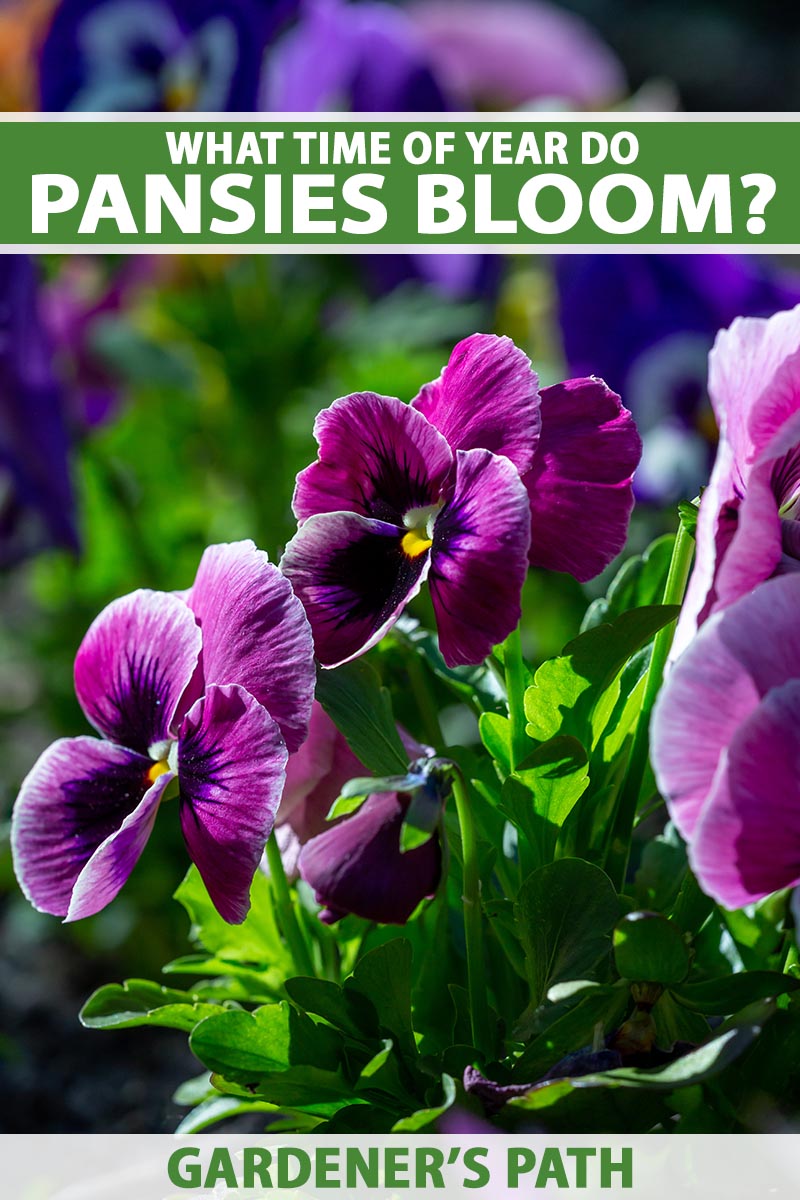
We link to vendors to help you find relevant products. If you buy from one of our links, we may earn a commission.
But when, exactly, do flowers in the Viola genus bloom?
To learn more about how to grow these beautiful, often sweet-smelling flowers, read our guide to growing pansies and violas.
If you want to know more about their bloom times so you can maximize those bountiful blossoms, keep reading!
Here’s what we’ll discuss:
All About Pansy Bloom Time
The Role of Growing Zones
First things first: the bloom time for these flowers depends on where you live.
Members of the Viola genus tend to prefer cool weather, unless they’ve been specifically cultivated for warmer climes.
As a general rule, pansies tend to be slightly less tolerant of both cold and heat than violets and violas, so keep this in mind when choosing varieties to grow in your area.
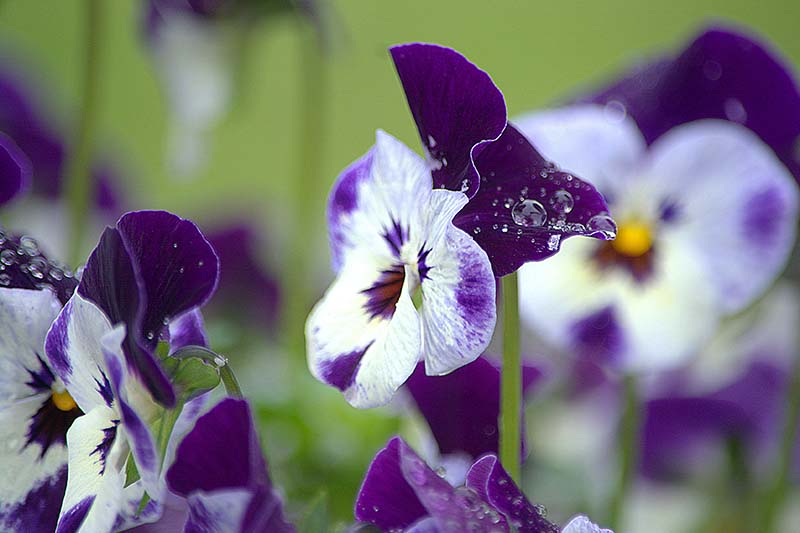
The ideal growing temperature for flowers in the Viola genus is around 60°F during the day and 40°F at night. Established plants, however, can thrive in warmer – and colder! – temperatures.
I’ve had violets live through several touches of frost up here in Alaska before finally succumbing to an overnight plunge into single-digit temperatures.
Depending on the cultivar or variety, violas, violets, and pansies do well in Zones 3 through 9, but they will bloom at different times depending on the zone.
In Zones 3 through 6, pansies begin to bloom in the spring and die back in the fall when temperatures consistently drop below 40°F.
Many that begin to flag in the heat of the summer will put on another show of blossoms with the return of cool weather in the fall.
For gardeners in Zones 7 through 9 (and sometimes 10, depending on the cultivar), you’ll want to sow seeds in late summer or early fall, allowing them to grow several inches tall and wide before the colder months arrive.
Established plants can bloom all winter and spring before the heat comes and finishes them off.
Violas will still bloom if you plant them in the spring in Zones 7 through 10, but they will struggle to stay alive under the summer sun.
Some won’t die: they may bloom beautifully in the spring before wilting in the summer, looking sad and forlorn until cooler fall weather perks them back up.
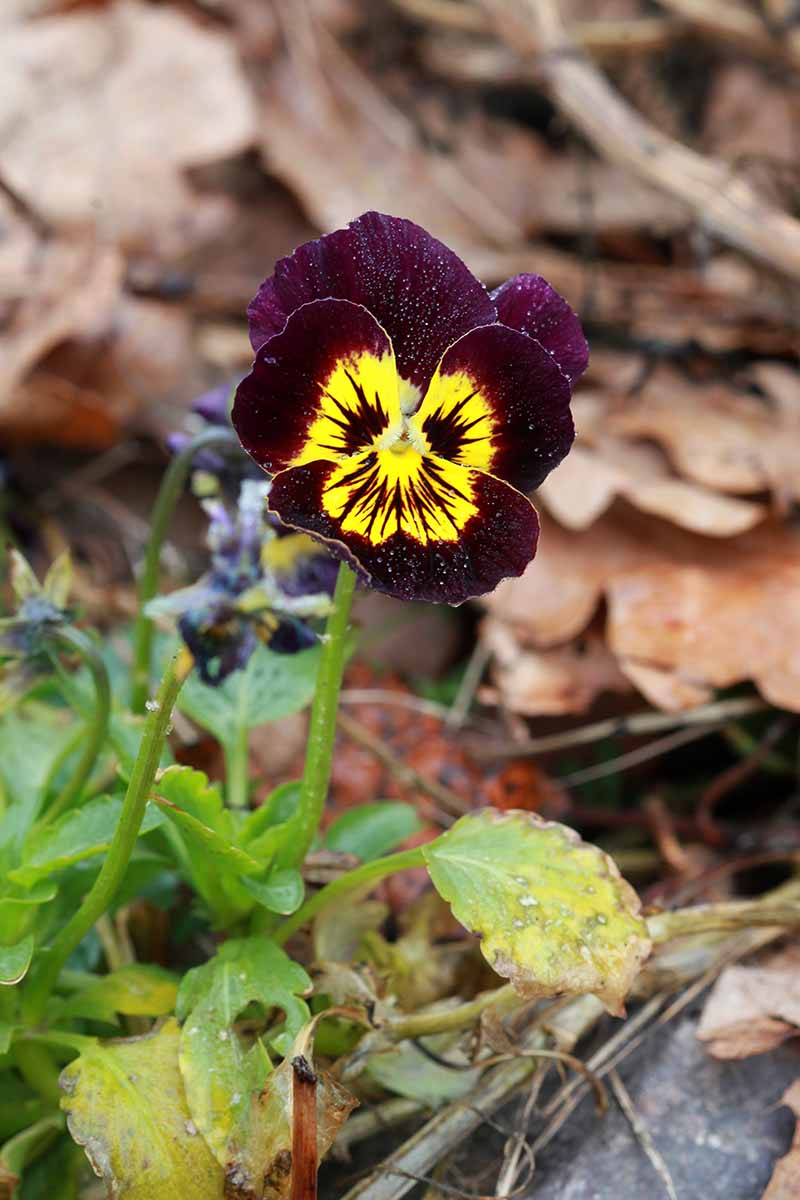
To diversify your flower beds, why not plant flowers that adore the heat – such as larkspur or dahlias – for summer beauty, and let your violets take over in the fall? It’s not a bad idea!
Are Pansies Annuals or Perennials?
Most members of the Viola genus are perennials, but many gardeners grow them as annuals.
In addition, some types of violas, including Johnny-jump-ups (V. tricolor), re-seed so easily that if you let them go to seed in the fall, they’ll naturally drop seeds that overwinter in the soil.
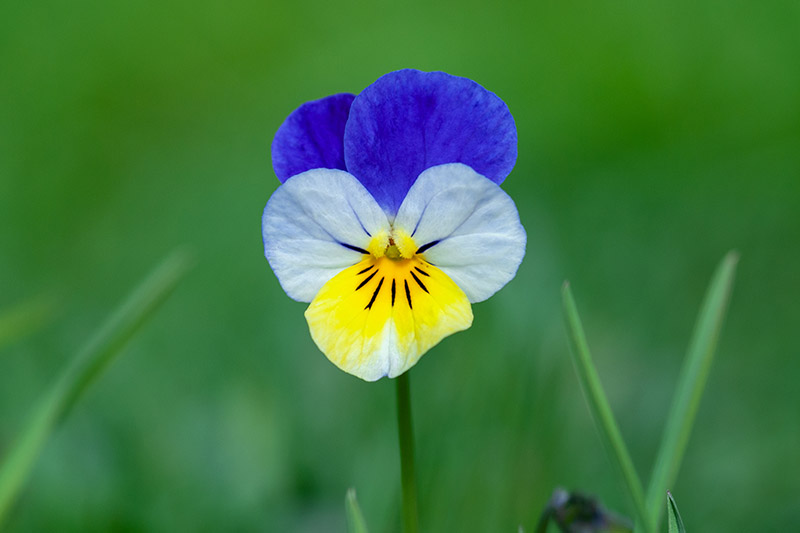
In the spring, those seeds will germinate all on their own, popping up without your help! In Zones 3 through 6, you can sow viola seeds among your spring bulbs.
They’ll leap up right around the time when your flowering bulbs have started to fade and turn brown after they blossom. How perfect is that?
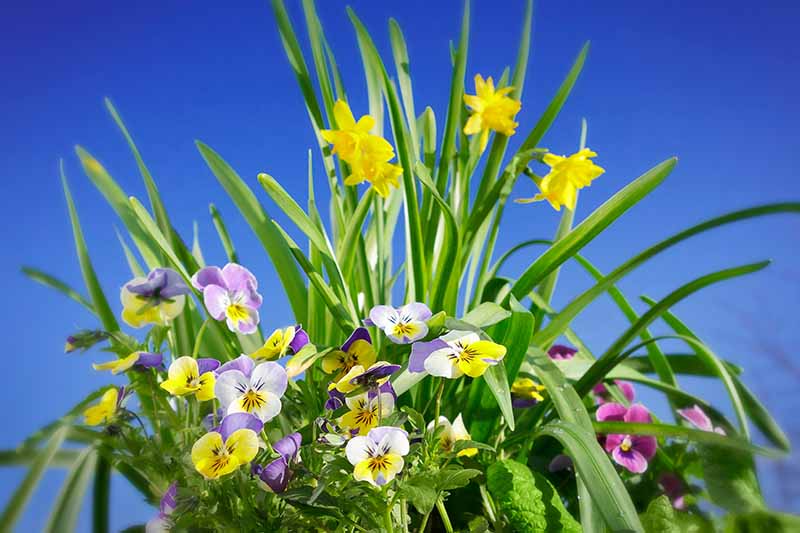
If you need help picking the perfect pansies for your flower garden, see our guide to 39 of the best violet, viola, and pansy varieties. You’re sure to find something you love.
Sweet Sights and Scents
There’s a perfect pansy for nearly every growing zone in the United States, so don’t delay – start your planning today.
And get ready for a beautiful show of flowers starting in the winter or spring, depending on the climate in your growing zone!
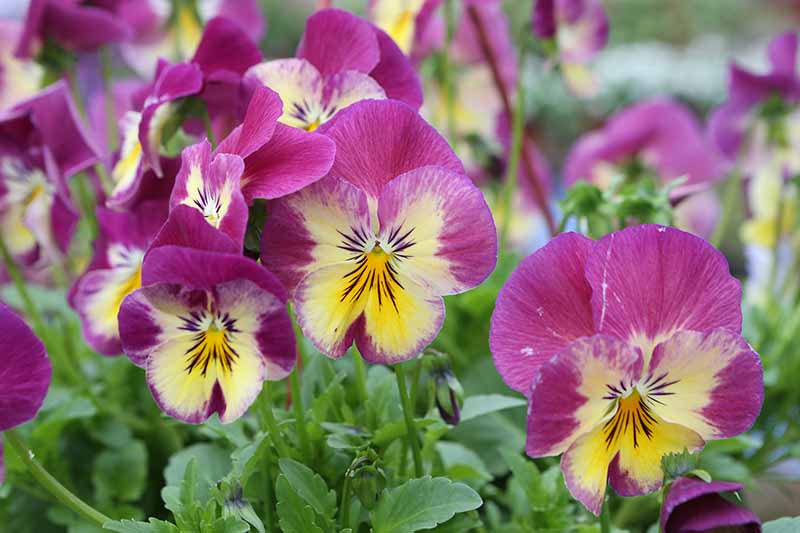
If you’ve ever grown members of the Viola genus, you know how joyous seeing the little blooms unfurl can make you feel.
Have you ever grown these small sweethearts? Share your questions and stories in the comments section below!
And check out these guides to growing flowers in the Viola genus next:

